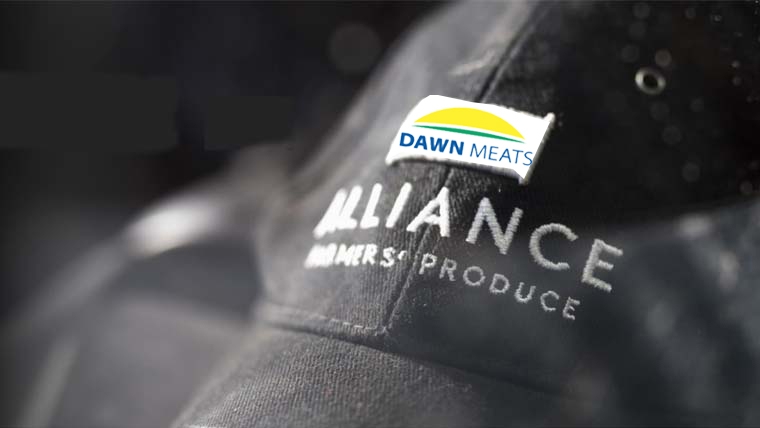
Southland-based meat exporter Alliance Group confirmed to shareholders today that, after a global search, its preferred investor is Irish meat processor Dawn Meats. This also confirms earlier speculation. The proposal is for an investment of $250 million for a 65% share in the cooperative, currently owned by its 4,200 farmer supplier shareholders.
About $200m would be applied to reducing the short-term debt facility currently provided by the bank syndicate which finances the cooperative. The balance would accelerate Alliance’s capital expenditure programme and contributions to shareholders based on livestock supply.
The successful capital raise follows two years of pre-tax losses of more than $200 million, which resulted in the banks requiring Alliance to obtain an equity injection of a similar amount. Initially it tapped its shareholders to contribute by means of deductions from livestock payments, unfortunately in the worst possible market conditions. This was cancelled in December and the search for external capital was launched in February.
The current financial year has seen a dramatic improvement in market prices and is assumed to have seen Alliance return to profit, boosted by internal cost savings and the closure of the Smithfield, Timaru meat works last year when a $52.5 million write down adversely affected its result. Future profits are far from guaranteed because of declining sheep numbers and the danger of market prices coming off their present highs.
Dawn Meats is one of Europe’s largest meat processors with annual revenue of Euro 3 billion ($5.8 billion or approximately three times Alliance’s turnover in 2024). It processes 3.5 million sheep and 1 million cattle annually, supplied by 40,000 farmers, at its 11 processing sites in Ireland and 13 in the UK.
Before the deal can be finalised, it must clear several hurdles. The transaction is to be implemented via a Scheme of Arrangement and will require a minimum of 75 per cent shareholder acceptance of those who vote, and greater than 50 per cent of all shareholding voting yes at a Special General Meeting (or via proxy) to be held in Invercargill in mid-October.
If shareholders do not support the proposed investment, the Alliance Board would be obligated to enter into a process led by its banking syndicate, which may involve possible asset sales, site closures and further cost-reduction initiatives.
The transaction would also require Overseas Investment Office approval which may well not be automatic, as at least one one of the coalition government partners will not be in favour. NZ First MP and Associate agriculture minister, Mark Paterson, has already indicated his party would not view the sale to an overseas buyer positively.
However unless farmer shareholders are prepared to come up with the money, there may be no realistic alternative. The dramatic improvement in Alliance’s balance sheet from Dawn Meats ownership of 65% of the cooperative gives it a fighting chance of a profitable future.
2 Comments
Both Alliance & SFFs (including as PPCS in earlier name) have been obliged over some years to resort to a variety of measures to raise capital. But nevertheless the trading losses have persisted, soon running off the acquired funding largely because all it is really doing is playing catch up on debt servicing and deferred upkeep. Instead of continued replays of that cycle it may have been preferable in the long term, for the banks to have again insisted on further rationalisation, forcing a merger of the two concerns and including more plant closures, to arrive at a balance, rather than over capacity versus supply.
Be interesting to see how the overall industry rationalisation proceeds with this new entrant.

We welcome your comments below. If you are not already registered, please register to comment
Remember we welcome robust, respectful and insightful debate. We don't welcome abusive or defamatory comments and will de-register those repeatedly making such comments. Our current comment policy is here.